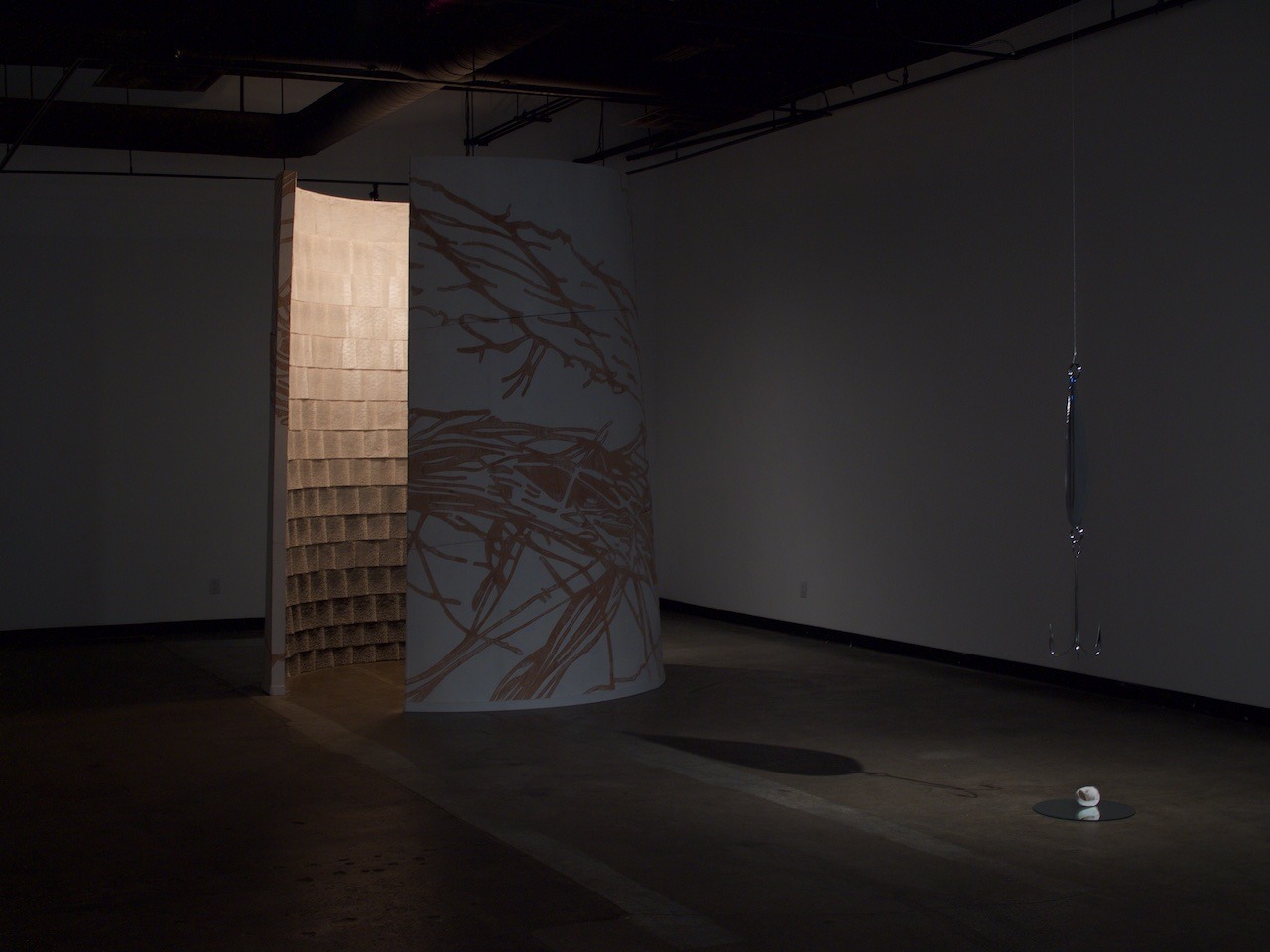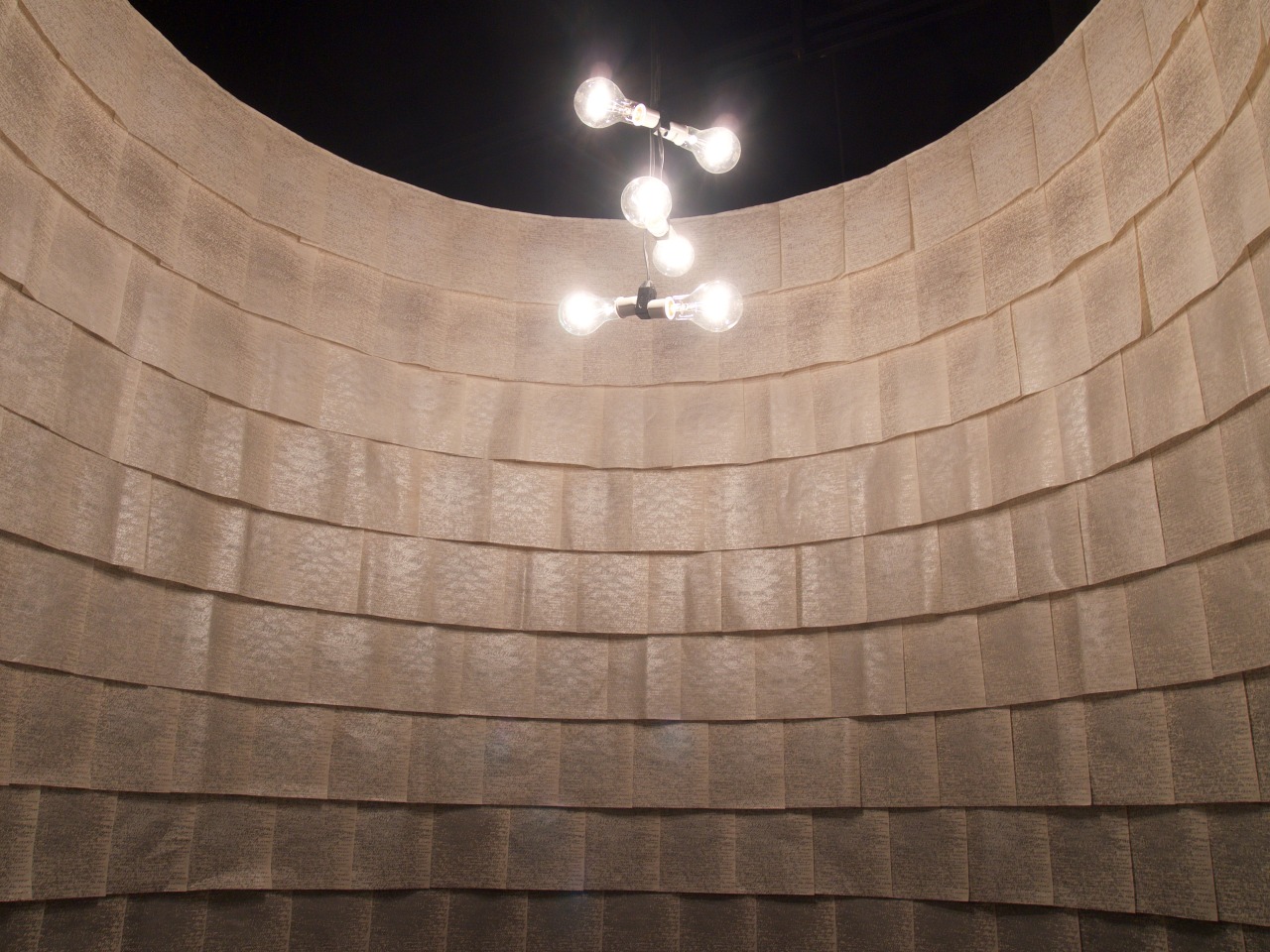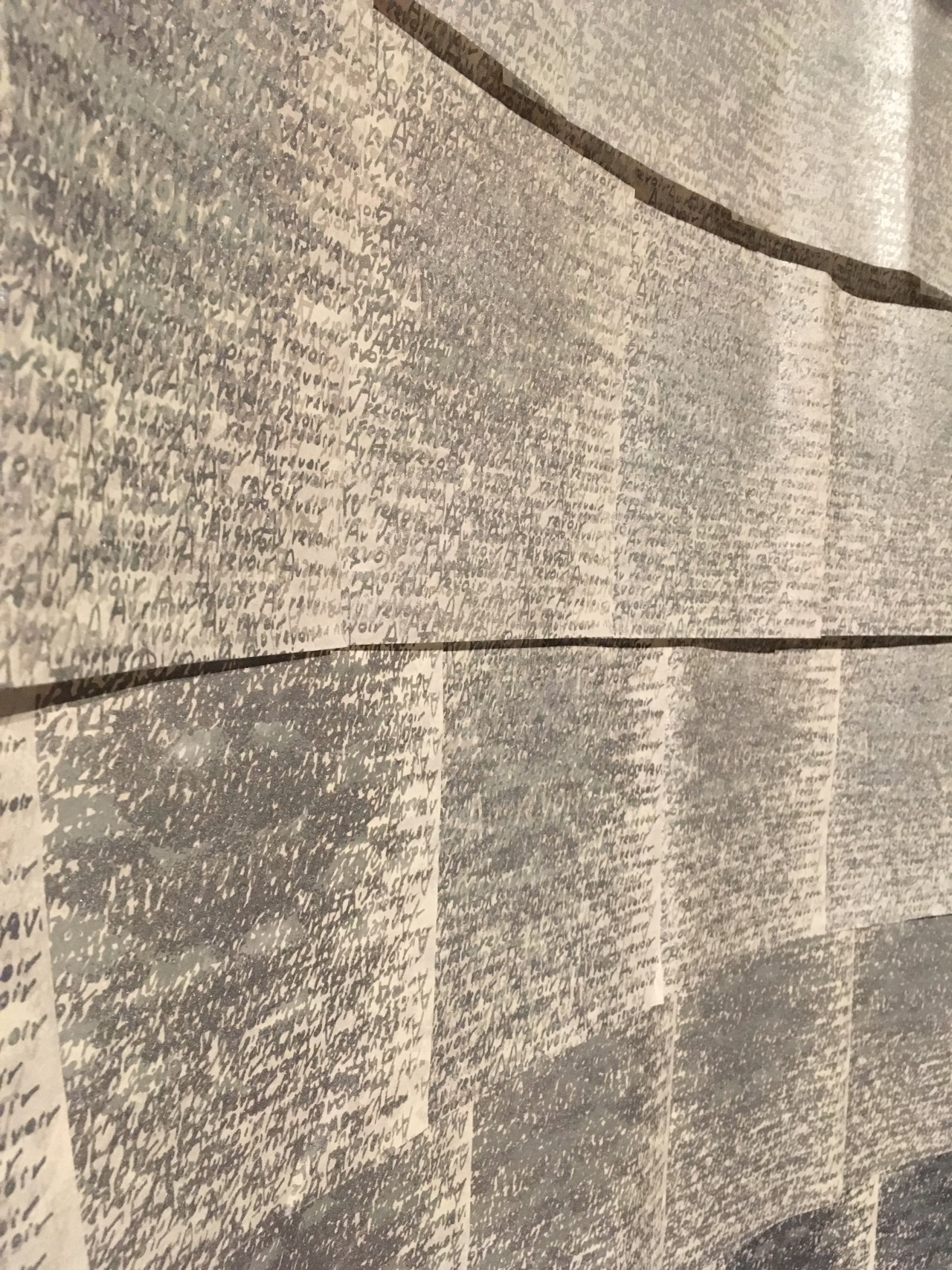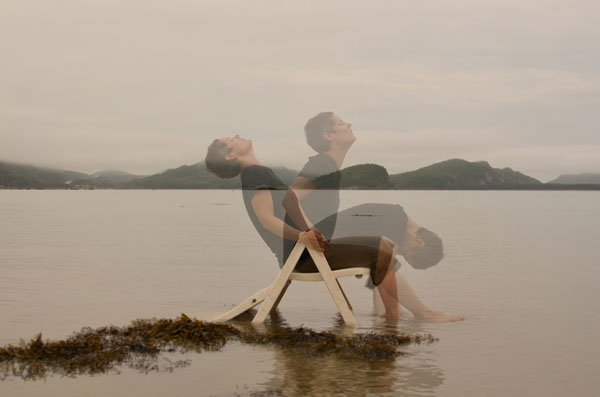Nadine Bariteau | Au Revoir
December 9–January 28, 2017
Opening reception: Friday, December 9 at 7 pm
Nadine Bariteau’s lighthouse-like structure is lit by a group of pulsing bulbs. In the flickering light the words “Au Revoir” repeat endlessly in glowing prints of her and written text. In the snowy winter landscape, she stands in the wind as it carries these words away. Bariteau’s practice draws a metaphor from water and allegories of landscapes for passing time and things that come and slip away.
Produced under the auspices of the Nick Novak Fellowship at Open Studio. The artist wishes to recognize Toronto Arts Council for their support and the Ontario Arts Council for an exhibition assistantship grant.
Mer
by Morgan Melenka
When I think about the Atlantic I am filled with images of grey skies, steely water, unforgiving depths and vertiginous expanses so huge they fill me with fear. This prairie girl does not feel at ease on a boat where there shore is not visible, and my mind summons images of cold harsh rains and a lonely horizon line. The sea as a metaphor of melancholy was the lens through which I first viewed Nadine Bariteau’s work Au Revoir / The Lighthouse, but soon remembered that the sea is not a formidable and capricious force to all. People have always lived by the sea and prospered from its bountifulness, and when speaking to the artist I was reminded that it is also a place of rejuvenation, quiet, and introspection.
Au Revoir/ The Lighthouse by Nadine Bariteau is a monument, an installation, a process of grief and a visualization of ambivalence about letting go. The structure functions similarly to a stone and mortar lighthouse by navigating the wayward and offering solace to those seeking. We mariners are reassured by a familiarly intermittent flashing light.
Within, dependant on the light, the viewer is greeted by shimmering salmon scales or an endless mass of text, both as a continuous pattern within the entire structure. The text reads “au revoir” in the artist’s hand and entirely covers the walls, creating the impression of a person caught in the act of memorizing or writing a mantra. Maybe if written enough times the goodbye will be real? Maybe we can be done saying goodbye if we do it well enough? But the French phrase doesn’t contain finality, it is not a farewell. Au revoir translates to “to meet again” and thus upends our expectations of grieving and the supposition that one day we will let go. The artist’s personal experiences have given her intimate knowledge of this - that those we lost never really leave us. When the light changes and we are encased in a salmon, we are reminded of the cyclical and sensible nature of the world. The salmon always find their place of birth. There is comfort in a world which adheres to its patterns and from which we will are not exempt. We too, in time, will die and be mourned.
Bariteau lost her mother five years ago, and in the process of understanding her mourning learned that she could no longer make the political work she had been making previously. Sometimes events outside of our control impress themselves in our lives in a way that cannot be ignored.
Why is it important to bear witness to another’s loss? Mourning is an exceptionally lonesome process, where those left behind are lonely for their lost loved-one and isolated from the normal world of order and sense. We all have lost or will lose and should understand this feeling, yet speaking about loss and the which accompanies it remains incredibly hard. The importance of Bariteau focussing on her loss within the work is the knowledge that, while the death of a loved one feels isolating, we all will grapple with loss. Wrapped up in the expectation of mourning is its finiteness - it is a period, a few months or perhaps a couple years, and then we can move on – an expectation that Bariteau challenges.
Carved ropes encircle the exterior walls of the lighthouse and function as a visualization of the question: are we holding on or letting go? Can we let ourselves continue mourning all our lives? Bariteau visits the sea as a place for reflection and peace when asking these questi ons. In Au Revoir / The Lighthouse she gives the viewer a glimpse of the sea, the life that fills it; and should the open sky overwhelm us, a structure to keep us safe.
-
Morgan Melenka is a visual artist from Edmonton AB. She is 25, has brown greying hair and is a much slower reader than she once was. Her work explores the artifice of images and she attempts to further complicate her relationship to the visual world through pattern, erasure, interference and occlusion. She is also a founding member of the artist collective Tennis Club, an artificial sports team which uses the guise of sport to explore assumed identity, performance, play and as a means to directly interact with Edmonton’s fan base.




